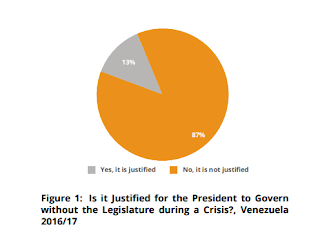Why I Write is a nice little collection of four George Orwell essays, with the second (The Lion and the Unicorn) being the longest by far.
"Why I Write"
Orwell describes how not until his 30s (with the Spanish Civil War) did he finally understand why he needed to write: "against totalitarianism and for democratic Socialism, as I understand it" (p. 8). And I love this quote:
So long as I remain alive and well I shall continue to feel strongly about prose style, to love the surface of the earth, and to take pleasure in solid objects and scraps of useless information (p. 9).
"The Lion and the Unicorn: Socialism and the English Genius"
This is a lengthy treatise on what is means to be British, with World War II has the backdrop. His appraisal of Neville Chamberlain could also work for Donald Trump: "His opponents professed to see in him a dark and wily schemer, plotting to sell England to Hitler, but it was far likelier that he was merely a stupid old man doing his best according to his very dim lights. It is difficult otherwise to explain the contradictions of his policy, his failure to grasp any of the courses that were open to him" (p. 28). Yet as critical as he is, he has complete disdain for whiny intellectuals who offer no constructive suggestions, largely because they know they'll never have the responsibility of actually making decisions.
He bogs down in his discussion of the superiority of socialism over capitalism, because writing during the war (the essay was published in 1940) he is focused on Germany's advantages and argues that capitalism is incompatible with building a war force. The U.S. has shown clearly that profit and war can go together perfectly, and indeed too perfectly.* Orwell was quite wrongly convinced that winning the war would open people's eyes to the benefits of a more planned economy.
Thomas Piketty wrote about how world war was critical for reducing inequality, but Orwell mistakes that for radical ideological change.
It gets hard, frankly, to square Orwell's excitement about a planned economy with his stated disgust for totalitarianism. He never discusses, for example, who makes decisions and what happens if people elect someone who wants to overturn it all. His discussion of India's inability to be independent is also both wrong and condescending. Ironically, both in essays and novels Orwell was very good at knowing what he was against but his vision of what
should be is hazy.
"A Hanging"
A short piece on the barbaric yet bureaucratic process of the British Empire executing prisoners in Burma. We don't even know what the individual did, but we know it was rather a bother to kill people sometimes because it delays breakfast.
"Politics and the English Language"
In this essay Orwell claims the English language is dying, and chooses a few politically-oriented passages to criticize as illustration. Some of these come from professors (even *cough* a political theorist) and communists, neither of which has ever been known to be proficient in the art of writing, so it's a straw man argument from the start. He starts to sound like Ernest Hemingway with his directness mandates.
But his basic instructions make sense. Avoid overused phrases and pretentious diction, for example. Though I must say his list of pretentious words (element, eliminate, etc.) seem pretty mundane to me. He even hates
cul de sac and everyone calls it that, so I guess on this one the dictionary won and he lost. He says that "fascism" has little real meaning so should be avoided, which I agree with for today, though of course his earlier essay worked to precisely define the term.
*Just after publishing I discovered one of my colleagues in History, Mark Wilson,
recently published an award-winning book on this very topic.
Read more...





